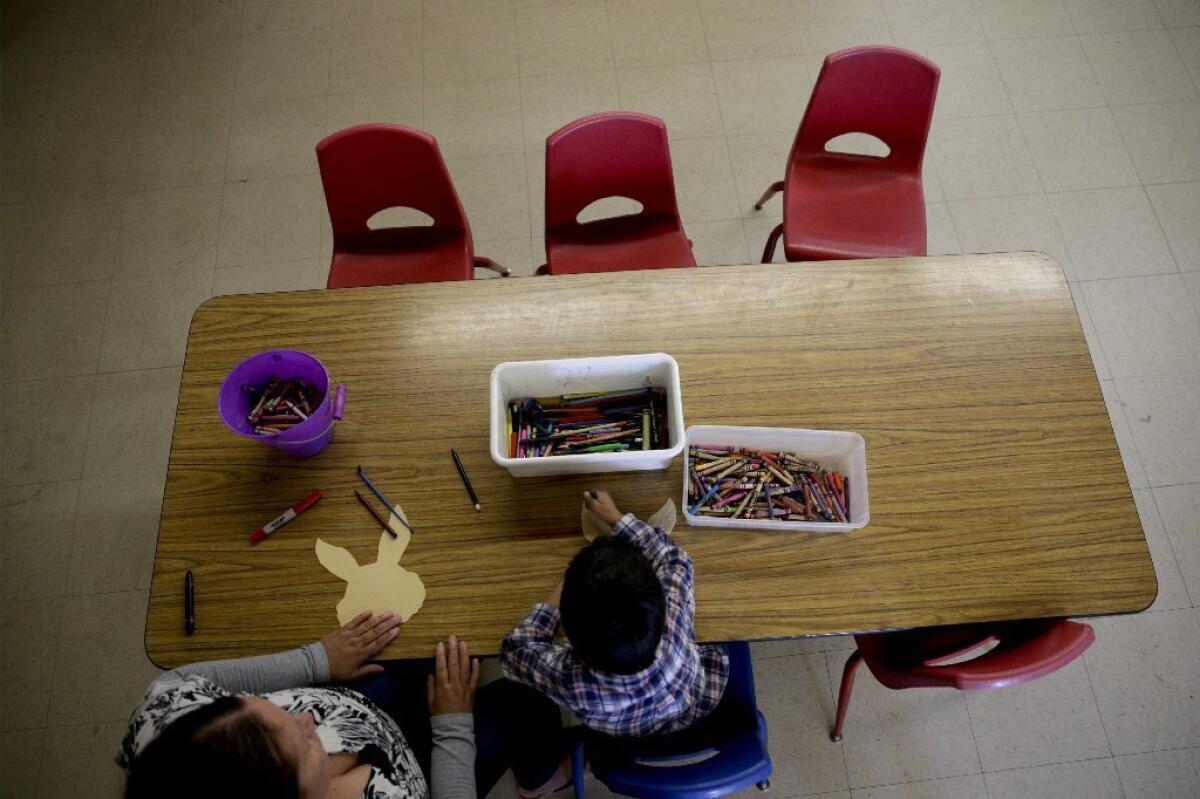Editorial: Steinbergâs preschool bill: Itâs still too ambitious

A too-costly bill that would have provided preschool for all California 4-year-olds has been slimmed down in useful ways. There is much to admire in Senate Pro Tem Darrell Steinbergâs (D-Sacramento) SB 837, which would give low-income families the option of placing their children in either an existing state preschool program or a more academically oriented âtransitional kindergartenâ at the local public school.
Unfortunately, it still attempts too much, adding a permanent and expensive new program to the stateâs budget and, worse, placing it within the stateâs Proposition 98 guarantee for schools. Should the state hit hard times, what would be more important, providing basic medical care for the working poor, home aides for the disabled elderly or transitional kindergarten? Steinbergâs plan would tie legislatorsâ hands; the answer would always have to be pre-kindergarten.
There are temporary resources to make a good portion of Steinbergâs vision come true. The state already has a transitional kindergarten program, costing about $700 million a year, which enrolls children with birthdays from Sept. 1 to Dec. 1. Under the stateâs new funding formula, that budget is expected to increase to $900 million a year. That money is already available. It comes from temporary savings in public school enrollment brought about by a change in age required to attend kindergarten. But the savings will end in about a decade, and to reach all 4-year-olds from poor families, Steinberg is proposing to immediately add almost $400 million to the pot.
It makes sense to use the existing money for low-income children rather than whichever children happen to have late birthdays. Although the program is costly on a per-student basis, in part because it requires a credentialed teacher in every classroom, the state would get more for its money by targeting disadvantaged children, who benefit the most from early learning programs.
Unlike his earlier bill, Steinbergâs amended proposal would not do away with the stateâs existing, less expensive preschool program. That too is a smart change. The presence of both programs would give the state a chance to study whether the more expensive program is worth the extra money.
Yet, missing from the proposal is any provision for long-term studies to see whether transitional kindergarten delivers on its promise. The state should not commit money that might not be available after 10 years, for a program with unknown benefits. California must do more to restore public services cut during the recession before it spends an additional $400 million on a new social program. It especially should not place a total of $1.3 billion extra into a permanent, guaranteed program that could hobble Sacramentoâs ability to meet its obligations in future lean years.
More to Read
A cure for the common opinion
Get thought-provoking perspectives with our weekly newsletter.
You may occasionally receive promotional content from the Los Angeles Times.










